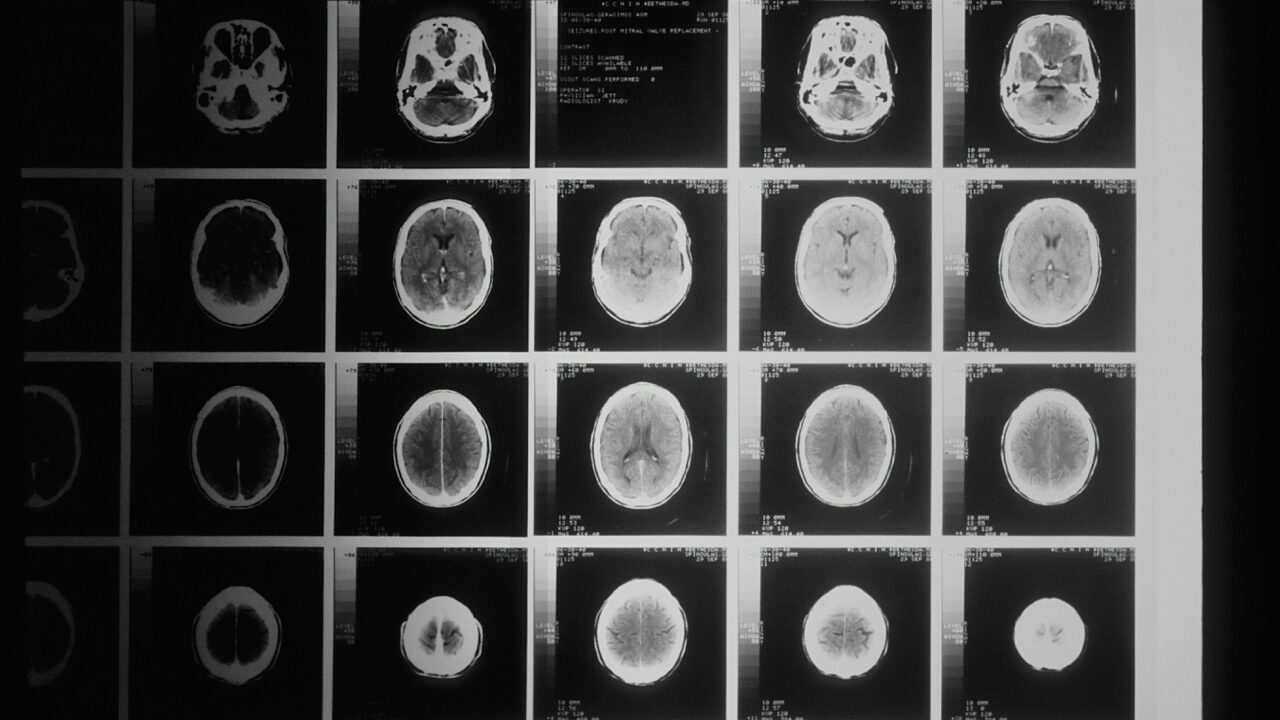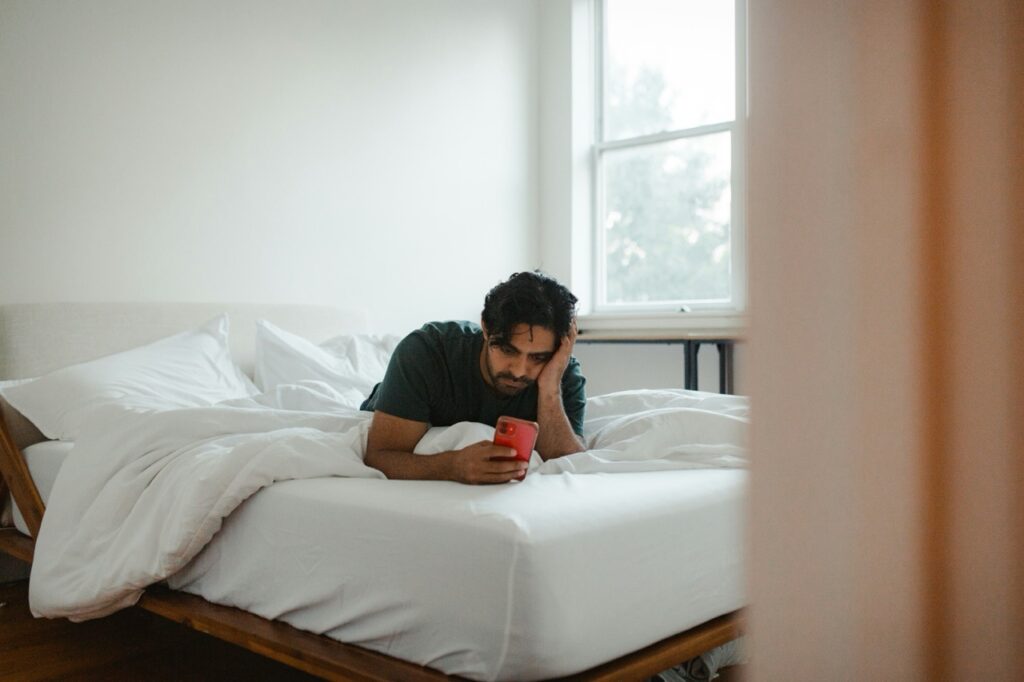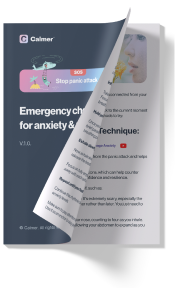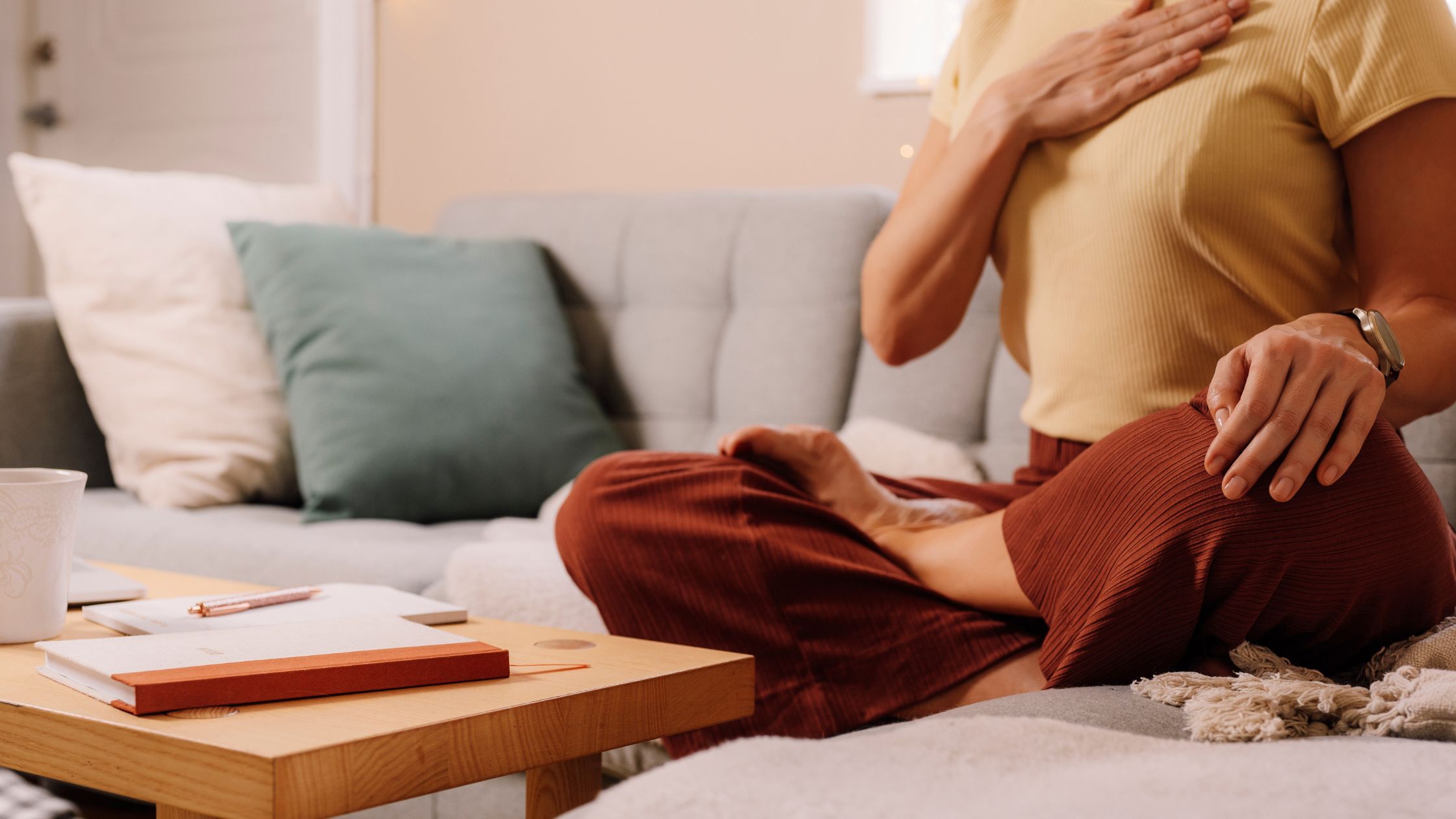Key Takeaways:
- Anxiety can actually spread from person to person, thanks to something called mirror neurons in our brains
- It’s not just about mirror neurons, though. Our social circles play a big role, too
- Luckily, you’re not doomed to be anxious forever. Below, I explain what you can do
Have you ever noticed that when someone around you is anxious, it seems to rub off on you? You start feeling jittery or uneasy without even knowing why.
It’s a phenomenon many of us have experienced, but is there any truth to the idea that anxiety is contagious?
Research suggests that, yes, anxiety can indeed spread from person to person, and the reasons behind it are fascinating.

Mirror Neurons: The Brain’s Imitation System
One of the key players in the transmission of emotions like anxiety is the mirror neuron system in our brains.
These neurons are like little social mirrors, firing not only when we perform an action ourselves but also when we observe someone else performing that same action.
That’s why when we see someone displaying signs of anxiety, our mirror neurons kick into gear, causing us to mimic their emotional state on a subconscious level.
This mirroring effect can be so powerful that we end up feeling anxious ourselves, even if there’s no obvious reason for it.

But this fascinating phenomenon isn’t just limited to anxiety—it happens with all sorts of emotions. From happiness and sadness to fear, our mirror neurons are constantly at work, helping us understand and connect with the people around us.
But when it comes to anxiety, this mirroring effect can be particularly potent. Our brains are wired to pick up on subtle cues from others, like body language, tone of voice, and facial expressions.
So when we see someone looking tense or worried, our mirror neurons go into overdrive, essentially mimicking their emotional state.
If that’s not interesting enough, this whole process happens automatically, without us even realizing it.
Social Contagion: The Influence of Others
But it’s not just mirror neurons at play here. Our social environments also play a significant role in how emotions spread.
Humans are wired to connect with each other on a deep level. From the moment we’re born, we’re soaking up information from our social environments like sponges.
We learn how to behave, what to feel, and even what to fear, all by observing the people around us.
So when we find ourselves in a group of anxious individuals, we can’t help but absorb some of that anxiety simply because it’s so prevalent in our social space.
It’s not a conscious decision—we’re simply built that way.

Anxiety is contagious precisely because it’s so easy to relate to. We’ve all been there at some point, feeling nervous or stressed about something.
So when we see someone else experiencing those same emotions, it’s like our own anxiety gets activated by proxy.
But it’s not just about mirroring the emotions we see in others. It’s also about the stories we tell ourselves about why they’re feeling anxious.
If we think there’s something scary or dangerous happening, even if there isn’t, our brains kick into high gear to keep us safe. And that can lead us to feel anxious, too, even when there’s no real reason for it.
My wife does this exact thing all the time. She always develops the worst-case scenario in her head about almost any unknown situation.
She always expects the worst thing to happen. Of course, the opposite is true, and things develop just fine in 99% of cases.
I try reminding her of that fact, but she just can’t shake off this anxiousness.
How to Deal With Contagious Anxiety
So, if anxiety is contagious, does that mean we’re doomed to be perpetually on edge? Not necessarily.
1. Recognize the Signs
First off, it’s important to recognize when you’re feeling anxious because of someone else. Pay attention to your body and your emotions.
Physical sensations include a rapid heartbeat, sweaty palms, tense muscles, or shallow breathing, among others,
Also, keep an eye on your mood—do you suddenly feel more stressed, easily irritated, or worried without any obvious reason? These are signs that you might be catching onto someone else’s anxiety.

2. Limit Exposure
Next, if possible, try to limit your exposure to the source of the anxiety. It’s a good idea to take a break from social media, avoid certain people or environments, or set boundaries with friends or family members who tend to bring out your anxious side.
During the onset of the Ukraine war, I found myself glued to social media and news updates, feeling increasingly anxious with each new report of attack and victims.
It seemed like every notification brought more grim headlines and alarming updates, fueling my sense of unease and uncertainty.
After a while, I realized that constantly consuming this barrage of information was only exacerbating my anxiety.
So, I made a conscious effort to limit my exposure to the news and social media. Instead of compulsively checking my feeds, I focused on activities that made me feel good.
Likewise, if there are certain people in your life who always seem to bring drama or stress with them, it’s okay to take a step back and spend less time with them.
You don’t have to cut them out completely, but maybe limit how often you hang out or try to steer the conversation towards more positive topics.
The idea is to be aware of what triggers your anxiety and take steps to avoid or minimize those triggers as much as possible.

3. Focus on the Positive
If you don’t want to be overwhelmed by anxiety and stuck in a loop of negative thoughts and worries, you simply must intentionally shift your focus away from those anxiety-inducing thoughts and onto the positive aspects of your life.
I always start by noticing the good things around me, no matter how small they seem to anyone else.
From the warmth of the sun on my face and the sound of birds chirping outside my window to the comforting presence of my wife and son (and cats!).
By actively seeking out these moments of positivity, you can train your brain to see the world in a more balanced light.

Bottom Line
In the end, the idea that anxiety is contagious isn’t just some old wives’ tale—it’s backed by science. Our brains are wired to pick up on the emotions of those around us, for better or for worse.
But armed with this knowledge, we can take steps to protect our own mental health and support others in managing their anxiety as well.
So, the next time you find yourself feeling anxious for no apparent reason, take a moment to consider the emotional climate around you.
You might just be picking up on someone else’s anxiety, and with a little awareness and effort, you can keep it from spreading further.
Plus, our new Calmer app can help, too. It offers guided meditation sessions and relaxation techniques that can help you manage your anxiety levels, mitigate panic attacks, and learn how to focus on the present moment.




